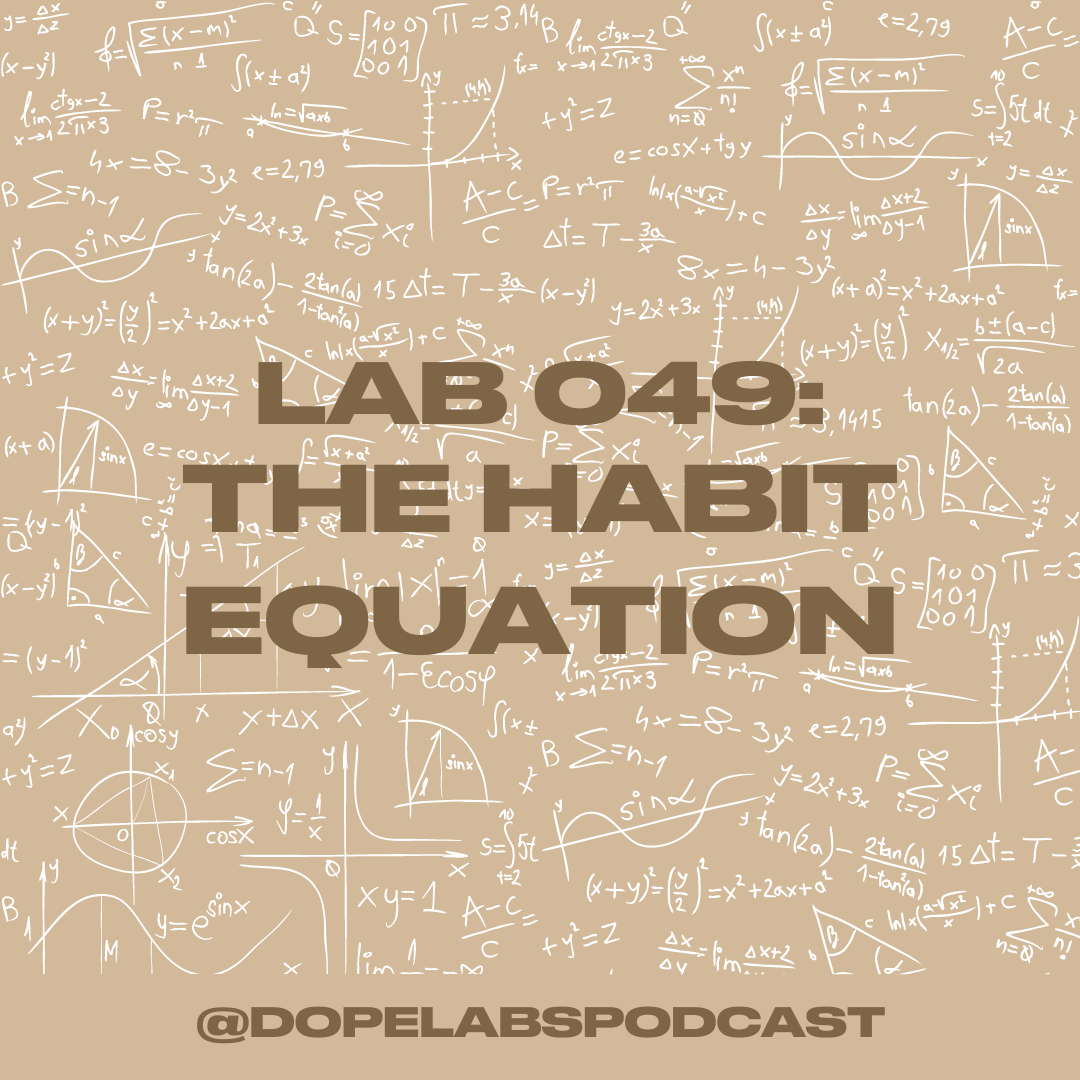LAB 049: The Habit Equation
About This Lab
This week we talked to behavioral scientist and author of Good Habits, Bad Habits, Dr. Wendy Wood, about habits, how to form new ones, and how to get rid of the ones we don’t like.
One common misconception is that it takes 21 days to form a habit. We have heard that a million times and Dr. Wood let us know where this myth started. In the 1950s a plastic surgeon named Maxwell Maltz noted in his book that after performing rhinoplasties or facelifts that it took his patients an average of 21 days to get used to their new faces. It had nothing to do with habits but the myth caught fire and now everyone believes it.
Habits are shortcuts that our brains make to make taks easier. Zakiya calls them the Konami codes for self-improvement.
Dr. Wood talked us through the 3 major parts of the equation of forming a new habit :
Repetition - Every time you repeat a behavior, your mind is processing it in part of your brain, which stores habit memories.
Rewards - Rewards are really important for habit formation because we're not going to repeat behaviors that aren't rewarding in some way. A reward doesn’t have to be something material, it can also be something mental like felling relaxed because a task is complete.
Context - Context is the vibes and everything around you! including people.
When you have all 3 of these in place you are well on your way to forming a new habit and Dr. Wood says you will know it is a habit when you do it without really thinking about it.
Guest Experts
Check out Dr. Wood’s book, Good Habits, Bad Habits. You can also follow her on Twitter @profwendywood

